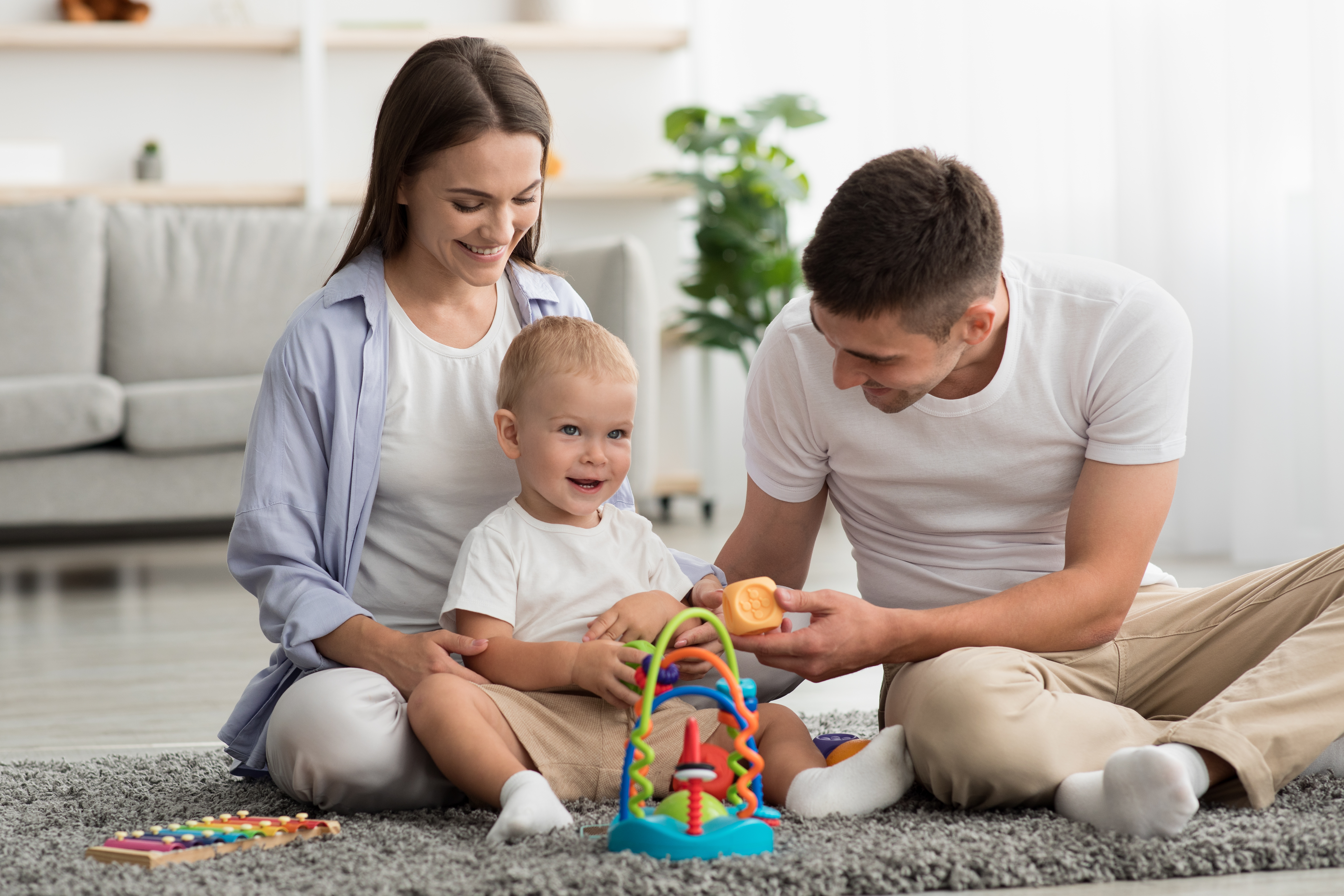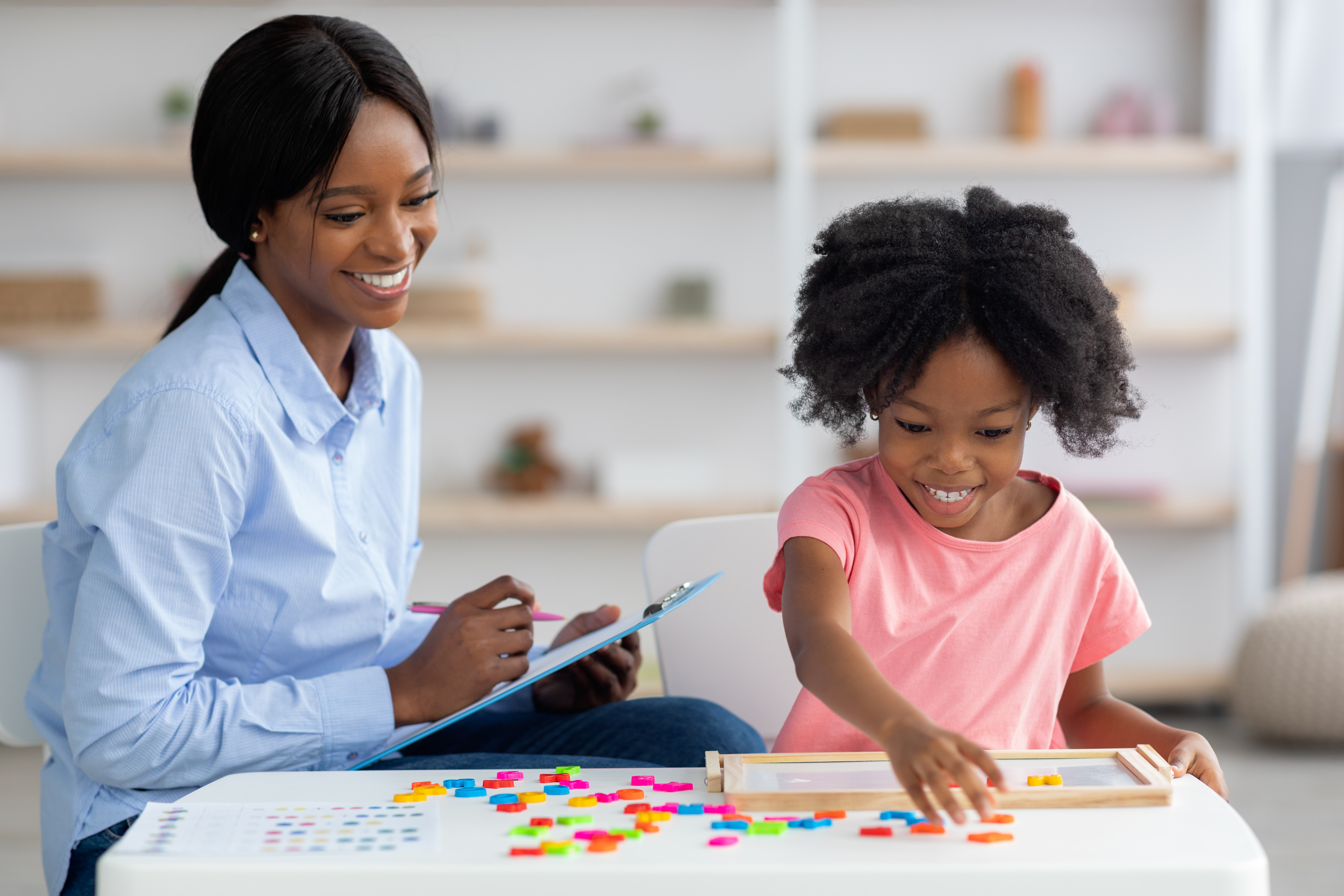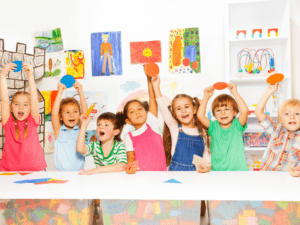Your child taking their first step or saying “ma ma” and “da da” for the first time are precious moments. They are also important child development milestones. The purpose of defining these milestones is to help parents and physicians understand how a child is developing. While every child reaches milestones in their own time (and sometimes their own order), if a child misses them or struggles to reach them, it could indicate developmental delays. Let’s look at these child development milestones and how special education can help your child reach them.
First-Year Child Development Milestones
The Centers for Disease Control (CDC) has established milestones based on research. They’ve divided these milestones by age.
Emotional & Social Milestones
2 Months
- Calm down when spoken to or picked up
- Look at your face
- Appear happy when you approach
- Smile when you talk or smile at them
4 Months
- Smiles to get your attention
- Chuckle when you try to get them to laugh
- Looks, moves, or makes sounds to get your attention
6 Months
- Knows familiar faces
- Likes to look in the mirror
- Laughs
9 Months
- Is shy or clingy around strangers
- Shows differing facial expressions
- Looks when you say their name
- Reacts when you leave the room
- Smiles or laughs at games like peek-a-boo
1 Year
- Plays games like pat-a-cake
Language & Communication Milestones
2 Months
- Make sounds other than crying
- React to loud noises
4 Months
- Makes cooing sounds like “ooh” and “aah”
- Responds to you with sounds when you talk
- Turns their head towards your voice
6 Months
- Takes turns making sounds with you
- Sticks out tongue and blows (“raspberries’)
- Makes squealing noises
9 Months
- Makes sounds like “ma ma”, “ba ba”, and “da da”
- Lifts arms to be picked up
1 Year
- Waves bye
- Calls each parent by a special name, “ma ma”, “da da” or something else
- Understands “no” and pauses or stops when they hear it
Cognitive Milestones
2 Months
- Watch you perform actions
- Look at a toy for several seconds
4 Months
- Opens their mouth when they see breast or bottle
- Looks at their hands with interest
6 Months
- Puts things into their mouth
- Reaches for toys and items they want
- Closes lips when they don’t want more food
9 Months
- Looks for objects that have been moved or dropped out of sight
- Bangs items together
1 Year
- Puts items into containers
- Looks for items you hide
Physical Development Milestones
2 Months
- Hold up their head when on their stomach
- Move arms and legs
- Open hands briefly
4 Months
- Holds their head steady without support
- Holds a toy you place in their hand
- Uses their arm to swing at toys
- Brings their hand to the mouth
- Pushes up on hands or elbows when on their stomach
6 Months
- Rolls from tummy to back
- Pushes up with straight arms when on their stomach
- Leans on hands for support when sitting
9 Months
- Can move to a sitting position on their own
- Moves items from hand to hand
- Use fingers to rake food to themselves
- Sits without support
1 Year
- Pulls up to stand
- Walks while holding furniture
- Drinks from a cup without a lid (with you holding it)
- Picks up items or food between thumb and finger
Remember, it’s normal for some children to reach milestones a little sooner or a little later than others. Talk to your child’s doctor about how they’re meeting or not meeting milestones. Your doctor can help determine if your child is experiencing significant delays or learning at their own pace.

How Special Education Helps Children Reach Milestones
If your child isn’t reaching their development milestones, special education can help them. We covered the first year milestones because many of the developmental delays a child may experience show in the first year. When parents and physicians are able to identify them early, children receive the assistance they need to not only reach those milestones, but catch up to their peers with their second year milestones and beyond.
An expert behavior or developmental therapist can help identify how your child learns and use that learning style to help them reach milestones. They are also trained on how to help children overcome developmental delays and progress past those milestones.
Remember, the sooner that you can identify developmental delays in your child, the better their outcomes. Delays can compound, further frustrating your child. By addressing them early, you help them reach important milestones now and in the future.
Does Your Child Need Special Education?
If you’re noticing any delays in any of the milestones we’ve discussed or if your doctor has suggested developmental therapy, contact us to set up an appointment. We will help match your child with one of our experts.







